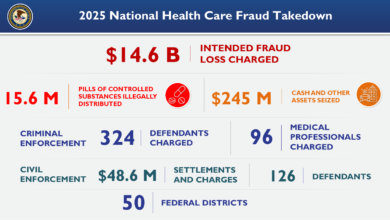University nursing applications fall again to lowest in five years

Applications to nursing and midwifery courses at UK universities have fallen again and are now at their lowest numbers for five years.
According to new figures from the University and Colleges Admissions Service (UCAS), there were 41,520 nursing applications, as of the June 2024 deadline, for the 2024-25 academic year.
“Debt and financial insecurity are putting off the next generation”
Nicola Ranger
This represents a 5.5% decrease from 2023, a 26.7% decrease on 2021 – when applications were in a post-pandemic boom – and means nursing degree entries for 2024-25 will be the lowest since 2019.
For midwifery, the UCAS figures show a similar picture; degree course applications for June 2024 are at their lowest for more than six years.
A total of 8,760 people applied to a UK midwifery course, as of the June 2024 deadline, a 9.9% decrease from the previous year and 34.4% lower than the 2021 peak.
Every UK nation recorded a decrease in midwifery applications, with only Welsh higher education institutions seeing nursing applications rise between 2023 and 2024, from 3,330 to 3,870.
The UCAS figures come just over a year after the publication of NHS England’s long term workforce plan, which set ambitious targets for the recruitment of nurses and student nursing intakes.
According to analysis by the Royal College of Nursing (RCN), the UCAS statistics show that the plan is significantly off-target.
RCN general secretary and chief executive Professor Nicola Ranger said financial insecurity, high student debt and a lack of investment in nursing education could be behind the fall in applications.
She called on the new health and social care secretary, Wes Streeting, to stage an “urgent intervention”, which she said was needed to “rescue” the plan from total derailment.
“Nursing is a wonderful and rewarding profession, but huge debt and financial insecurity are putting off the next generation,” said Professor Ranger.
“Patients and nursing staff alike need the new government to come good on their promises to deliver the workforce plan – after its first full year things have headed in the wrong direction at the very time we know the NHS is struggling to retain current staff.
“Investment in nursing education means more nurses in our health and care settings. This is key to making the nation healthier and getting people back into the economy.”
Professor Sandy Harding, associate director of RCN Wales, aired similar concerns despite the increase in her country’s student nursing numbers.
“We welcome this year’s 16% rise in UCAS applications for nursing in Wales, however, we are still short of where we need to be,” she said.
“The increase doesn’t outweigh last year’s 21% drop in applicants, so we must continue to build on this positive increase‚” she said. “We need these figures to be so much better.”
The union’s Welsh branch demanded that the devolved government in Wales restart a currently-paused review into the nurse bursary to ensure it is adequate.
Professor Harding added: “The number of applicants would have fallen again this year had it not been for strong international student numbers.
“Nursing must be seen as an attractive and sustainable career choice to prospective students – both at home and international,” she said.
Mr Streeting is facing similar calls from social care leaders, too, following the publication today of the Skills for Care social care workforce plan for England.
This plan made calls to invest in social care that mirrored that in the NHS Long Term Workforce plan – namely boosts to pay, retention, recruitment and training for registered nurses to join the care sector.
The renewed focus on the nursing workforce comes after the first King’s Speech of the new government, in which the plans of prime minister Sir Keir Starmer’s government were outlined.
While the speech pleased many in the public and mental health sectors, and pledged pay rises for social care, it remains to be seen what the government will do to address falling student application numbers and missed workforce plan targets.
Read more about UCAS data and other related articles






